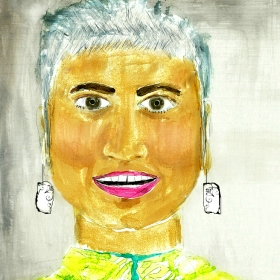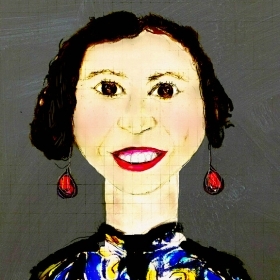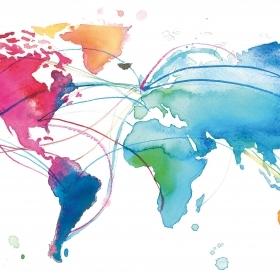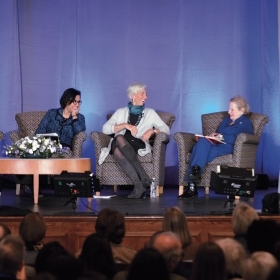Rajul Pandya-Lorch ’85 works to end hunger through her work at the International Food Policy Research Institute. She’s learned that hunger is exceedingly complex, hunger cannot be fought from an office building in a capital city, and hunger does not take away a person’s dignity.

For almost three decades, Rajul Pandya-Lorch ’85 has been working to end hunger from her various posts at International Food Policy Research Institute (IFPRI). She arrived at the Washington, D.C., think tank in 1987, shortly after earning her master’s in public and international affairs from Princeton University. Pandya-Lorch currently serves as chief of staff in the Director General’s Office and is also head of IFPRI’s 2020 Vision for Food, Agriculture, and the Environment Initiative, which seeks to identify global needs for food while protecting the environment and reducing poverty. Pandya-Lorch resides in Chevy Chase, Md., but frequently travels the world. The last two food policy conferences she organized, for example, were held in New Delhi, India (2011) and Addis Ababa, Ethiopia (2014).
You often note that you’re a Kenyan citizen of Indian origin. You grew up in the city of Mombasa, Kenya. Did this shape your world view or choice of work?
Mombasa is a multicultural environment, predominantly African, Arab, and Indian. I learned early on that people have different approaches and ways of doing things, but that we also have a great deal in common.
Growing up there, I was not exposed to abject hunger and deprivation. But I recall a trip we took to visit family in India and feeling that we were much better off in Mombasa than the people who were visibly poorer and hungry in India. Still, it wasn’t until I began studying issues of poverty and development at Wellesley that I realized hunger was so pervasive and complex.
What do you mean by pervasive?
Today, about 795 million people—more than twice the population of the United States— suffer from hunger. The highest burden of hunger occurs in South Asia, where nearly 281 million people are undernourished. In sub-Saharan Africa, just under one in every four people, or 220 million people, are hungry.1
And relieving hunger at that scale is not as simple as shipping food to those places, because hunger is, as you say, complex?
Right. A good example of this is famine. Famine has occurred relatively recently in Somalia and Ethiopia, and, even further back, in Bengal. While something like drought can trigger [famine-associated] food disruption, there are often larger underlying policies that lead to famine. Also, solutions to it are debatable. For example: Do you provide assistance with food, or do you provide it with cash? And, after a famine, how do you help communities recover? My work addresses challenges such as these. As head of IFPRI’s 2020 Vision Initiative, one of the things I do is bring together experts from around the globe to discuss emerging food policy.
What have you learned are the most effective tools we have to combat hunger?
Investing in research and technology, and putting that knowledge to work, for example, by developing advanced techniques for crop breeding.
Making public investments in infrastructure and education to ensure that technologies can have the intended effects.
There is a third thing. I keep a short saying from a fortune cookie on my desk: “Avoid compulsively making things worse.” I think it’s incredibly important for those of us working in the field of international development to remember. We may think we have the solutions, but without understanding the larger context of an issue, we could end up doing more harm than good. We cannot fight hunger from an office building in a capital city. We must work with communities to develop tools that work for them in their setting and with their cultural norms. We will not end hunger if communities are not involved from the beginning and in a sustained way.
You mentioned that in African and Indian communities, the physical toll of chronic hunger looks relatively similar. But what about when hunger is viewed from a cultural or psychological standpoint?
Hunger does not take away a person’s dignity. No matter where you go, people are doing the best they can to take care of themselves and their children. It is very important to me that we in the development community recognize the dignity in all people and never compromise that in the work we do.
Can you describe a meal that makes you feel truly grateful that you enjoy the privilege of eating healthily, and with regularity?
As a lifelong vegetarian, one of my favorite meals is a rice and vegetable dish that my mother made for me as a child and that I continue to make today. It’s very simple: peas, potatoes, carrots, rice, and seasoning (salt, red pepper, and turmeric). Anyone could make this; it does not require fancy ingredients or tools. This meal is comfort food for me and brings back many memories of my mother preparing it, but I also love this dish because it’s fast, simple, and filling.
If you could go back and offer advice to 18-year-old Rajul at Wellesley about traveling the world, what would that advice be?
My advice to my 18-year-old self would be: Be brave and immerse yourself in a country when you travel. I have had many wonderful opportunities to travel around the world because of my work, but I wish that I had taken more time to immerse myself in these places, to go outside the major cities, and to really get to know the people. This requires getting outside your comfort zone, not being afraid to stand out, and taking the time to appreciate different cultures.
1 International Food Policy Research Institute, Global Nutrition Report 2015: Actions and Accountability to Advance Nutrition and Sustainable Development. (Washington, D.C.: IFPR, 2015)
Part III in a series about alumnae whose lives and work take them around the globe. If you’d like to suggest an alum to profile, please email magazine@wellesley.edu.


